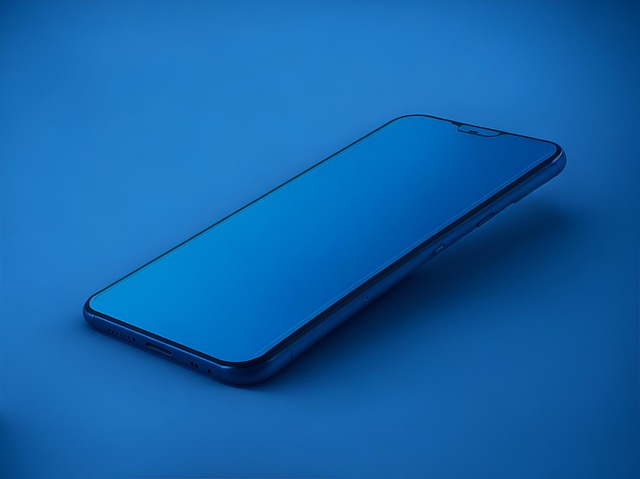South Carolina businesses must adhere to strict No Call laws to protect consumers from spam calls and texts. Non-compliance incurs severe penalties from the Attorney General's Office. Engaging specialized No Call Lawyers or No Call Attorneys in SC helps navigate this complex area, ensuring privacy while allowing effective marketing through telemarketing systems. Following best practices, integrating robust no-call compliance, and regular monitoring with a South Carolina Spam Call law firm protects businesses from legal repercussions, customer backlash, and strengthens trust with clients.
Integrating No Call Compliance into your data protection strategy is essential, especially in South Carolina, where strict no-call laws are in place to safeguard consumers from unwanted spam calls. As a business owner, understanding these regulations and their implications is crucial. This guide, tailored for Aiken Enterprises, explores the legal perspective of no-call compliance, its impact on consumers, and provides a step-by-step approach to seamless integration with your data protection strategy. Discover how to avoid common pitfalls and best practices from top no-call lawyers in South Carolina.
Understanding No Call Compliance: A Legal Perspective for South Carolina Businesses
For South Carolina businesses, understanding No Call compliance is crucial in today’s digital era. The Spam Call laws in South Carolina are designed to protect consumers from unsolicited phone calls, text messages, and faxes. These laws, collectively known as No Call Laws, are enforced by the South Carolina Attorney General’s Office and can result in substantial fines for non-compliance. Businesses must ensure they have a comprehensive understanding of these regulations, especially when marketing initiatives involve telemarketing or automated dialing systems.
Aiken Enterprises should seek guidance from a reputable No Call Lawyer or No Call Attorney in South Carolina to stay compliant. Such legal professionals specialize in navigating the complex landscape of No Call Laws, ensuring businesses respect consumer privacy while effectively promoting their products or services. By engaging a specialized law firm, Aiken Enterprises can protect itself from potential penalties and maintain a positive reputation, fostering trust with its customers.
The Impact of Spam Calls and How No Call Laws Protect Consumers in SC
Spam calls have become a widespread nuisance, with consumers receiving unwanted and often fraudulent messages that disrupt their daily lives. These spam calls can include marketing pitches, scams, or even threatening messages, leaving many South Carolina residents feeling violated and frustrated. In response to this growing concern, No Call Laws have been implemented in South Carolina to protect consumers from these harassing tactics.
These laws, enforced by No Call Lawyers and No Call Attorneys based in South Carolina, restrict the practices of telemarketers and call centers, ensuring that consumers can enjoy a quieter, safer digital space. By enacting these regulations, residents are empowered to take control of their personal information and communication preferences. When businesses comply with Spam Call laws and No Call law firms in SC guide them on best practices, it fosters a more trustworthy relationship between companies and customers, ultimately enhancing data protection and consumer satisfaction.
Integrating No Call into Your Data Protection Strategy: Step-by-Step Guide
Integrating No Call Compliance into your data protection strategy is a crucial step to safeguard your business from legal repercussions and customer frustration. Here’s a simple, step-by-step guide tailored for Aiken enterprises:
1. Understand No Call Laws in South Carolina: Familiarize yourself with the state’s Spam Call laws and regulations, specifically targeting robocalls and automated messages. A No Call lawyer or attorney in South Carolina can offer expert insights to ensure full compliance.
2. Identify and Categorize Data Sources: Audit your company’s data storage to pinpoint numbers or databases that may be used for outbound calls. Categorize these based on their purpose, such as sales, marketing, or customer service, to tailor your No Call strategy accordingly. South Carolina’s No Call laws firm recommendations often emphasize the need for explicit consent, so ensure you have proper documentation in place.
3. Implement Consent Management: Obtain written consent from individuals before making any automated calls. Train your staff on obtaining and documenting this consent. A reputable No Call law firm in South Carolina can assist in drafting clear and legally sound consent forms. Regularly review and update these forms to align with changing laws and customer preferences.
4. Utilize Technology for Compliance: Leverage advanced call tracking software and automated systems that allow you to monitor and manage calls efficiently. These tools enable you to identify unauthorized or unauthorized callers, ensuring your firm remains within the legal framework. Consider engaging a technology partner specializing in No Call solutions for custom-tailored recommendations.
5. Train Your Team: Educate your employees about No Call laws and their importance. Ensure they understand the consequences of non-compliance, both for the company and individuals responsible. Regular training sessions can help keep everyone accountable and proactive in adhering to these regulations.
6. Monitor and Adapt: Stay updated on changes in No Call Laws South Carolina through reliable legal resources. Periodically review your strategy with a No Call lawyer to ensure it remains robust and effective. This dynamic approach will protect your enterprise from potential spam call lawsuits and maintain customer satisfaction.
Best Practices and Common Pitfalls to Avoid in Implementing No Call Measures
Implementing no-call measures is a proactive step toward safeguarding consumer privacy and compliance with stringent data protection laws, including those in South Carolina. However, best practices must be followed to avoid common pitfalls that could lead to legal repercussions, such as those handled by a No Call Lawyer South Carolina or No Call Attorney South Carolina. One major mistake companies often make is failing to obtain explicit consent from customers before making automated calls, which can trigger spam call lawsuits and damage the firm’s reputation. It’s crucial to have robust systems in place for obtaining, storing, and managing customer consent, as well as clear processes for excluding numbers from calls if requested.
Another pitfall involves neglecting to monitor and audit call records. Regularly reviewing logs can help ensure compliance with no-call laws and quickly identify any unauthorized or unwanted calls. This is where a dedicated No Call Law Firm South Carolina or lawyer specializing in No Call Laws South Carolina can be invaluable, providing guidance on staying compliant while leveraging technology to automate consent management and reduce the risk of accidental non-compliance.






